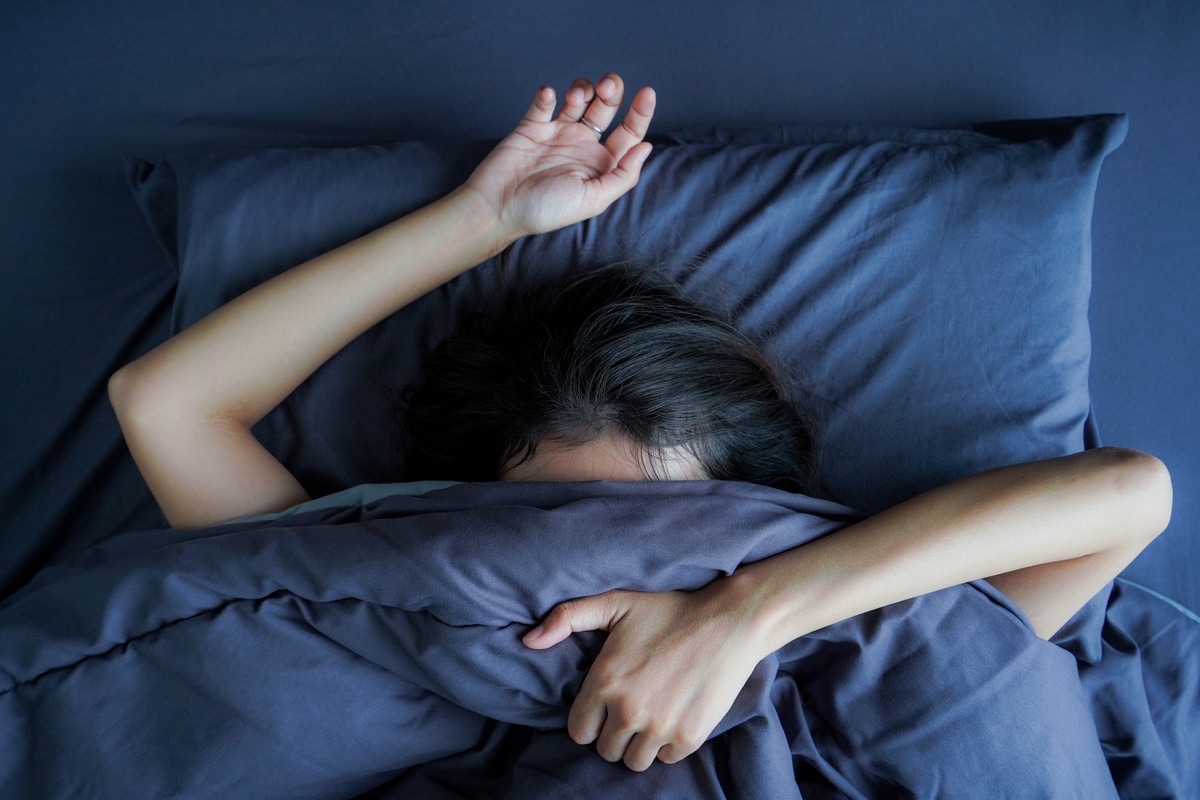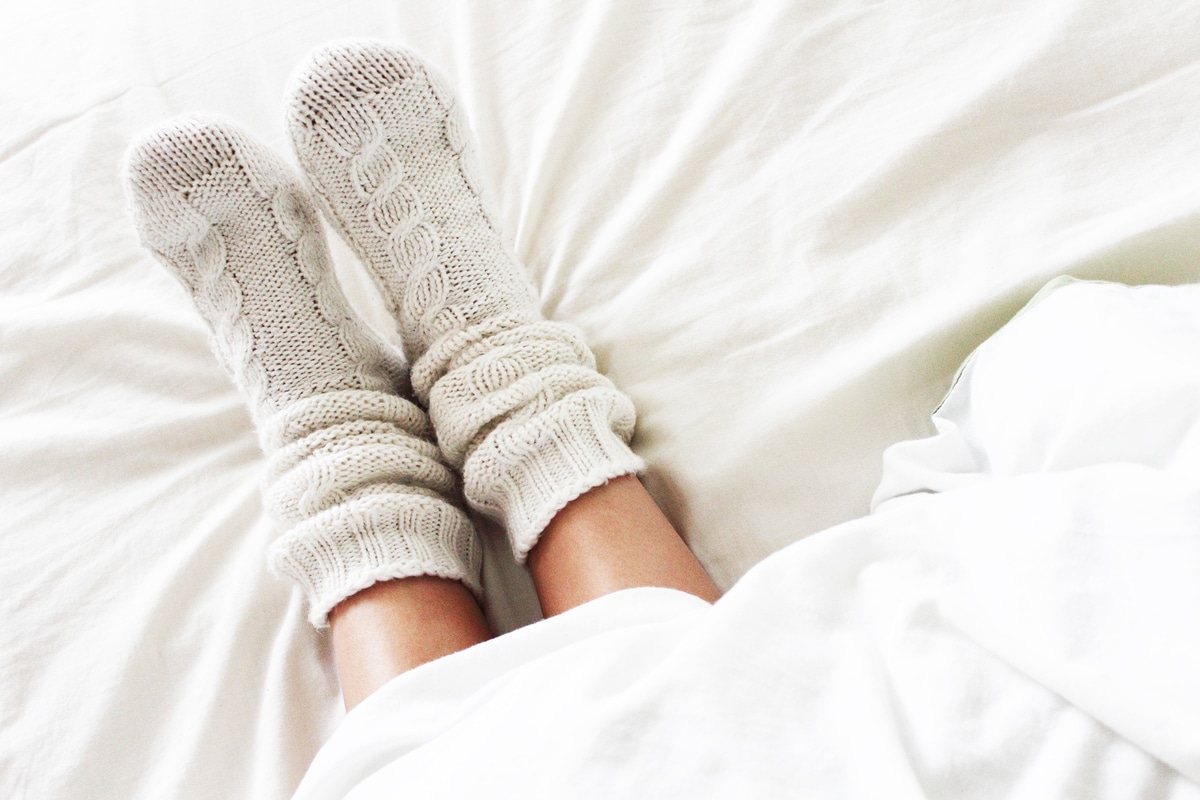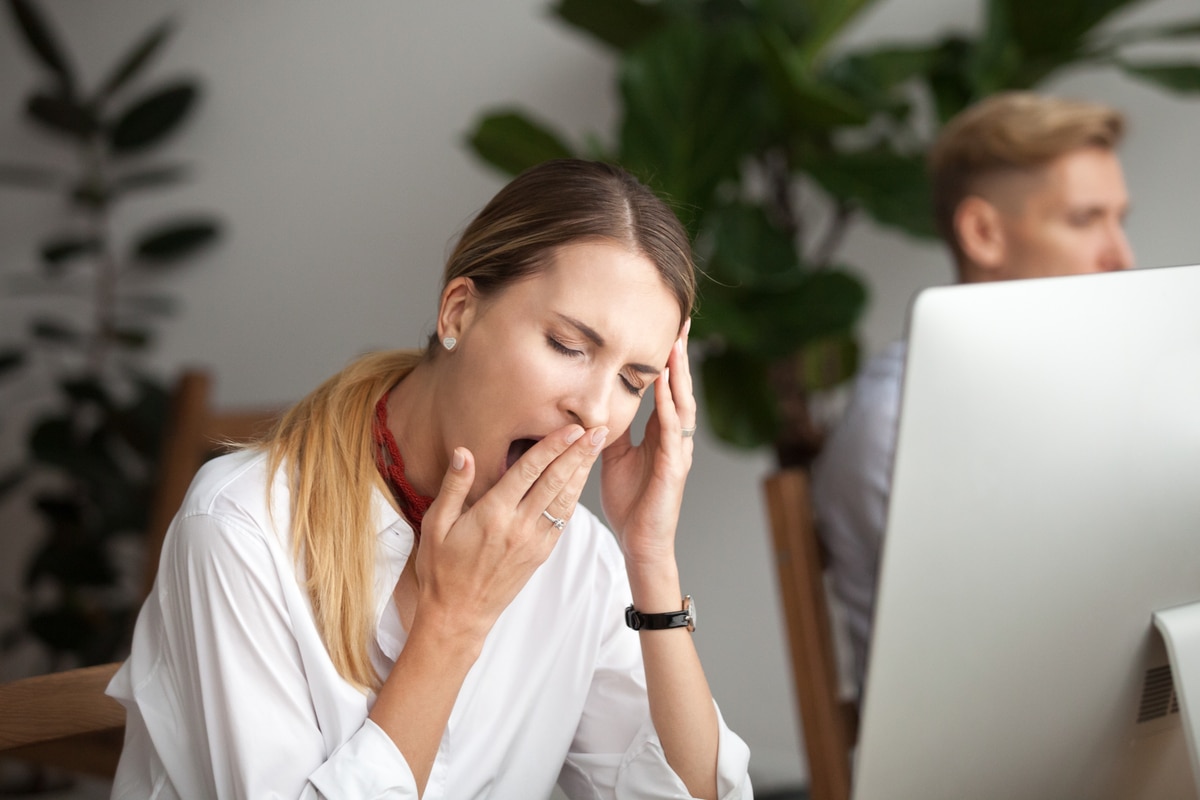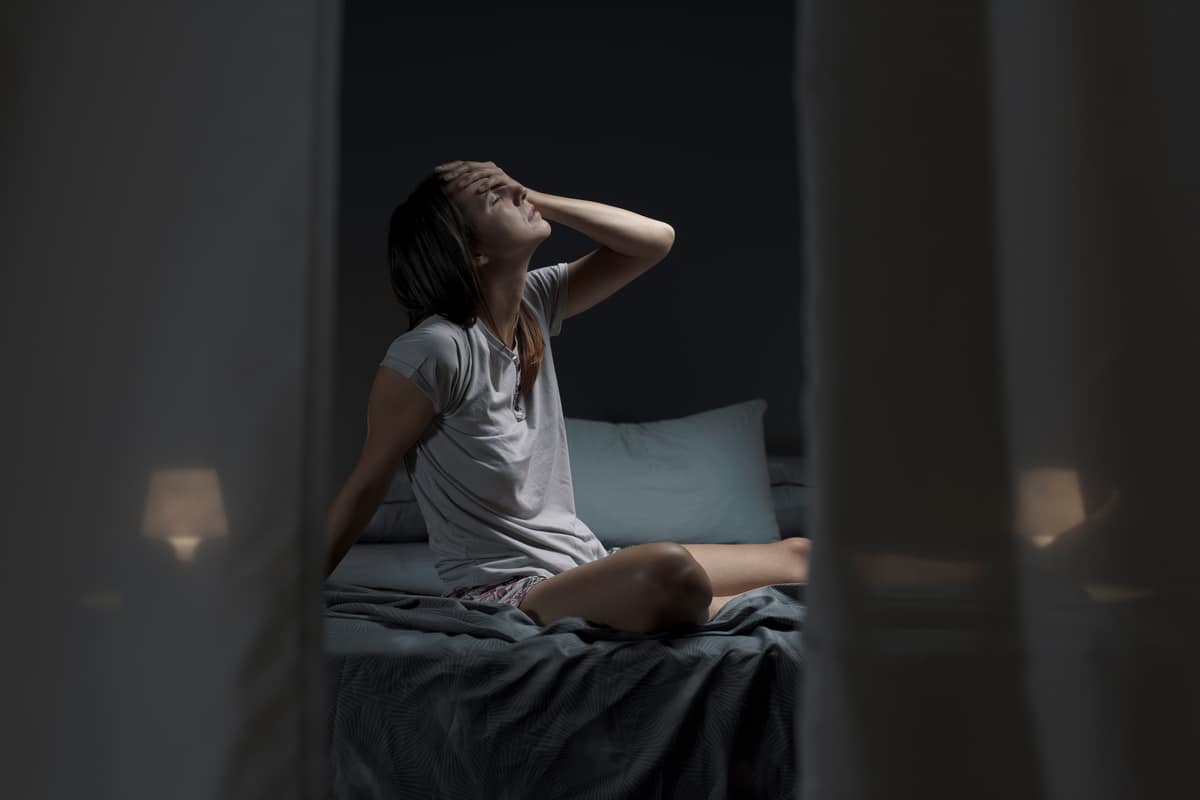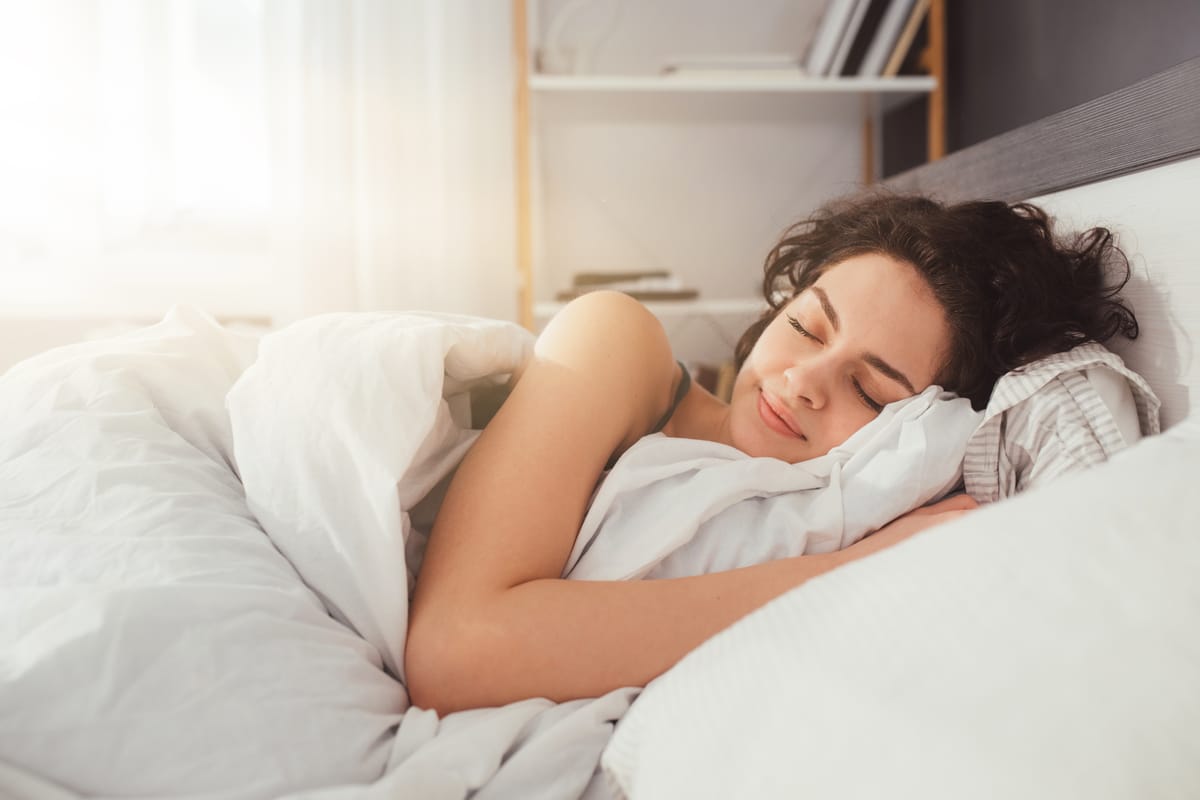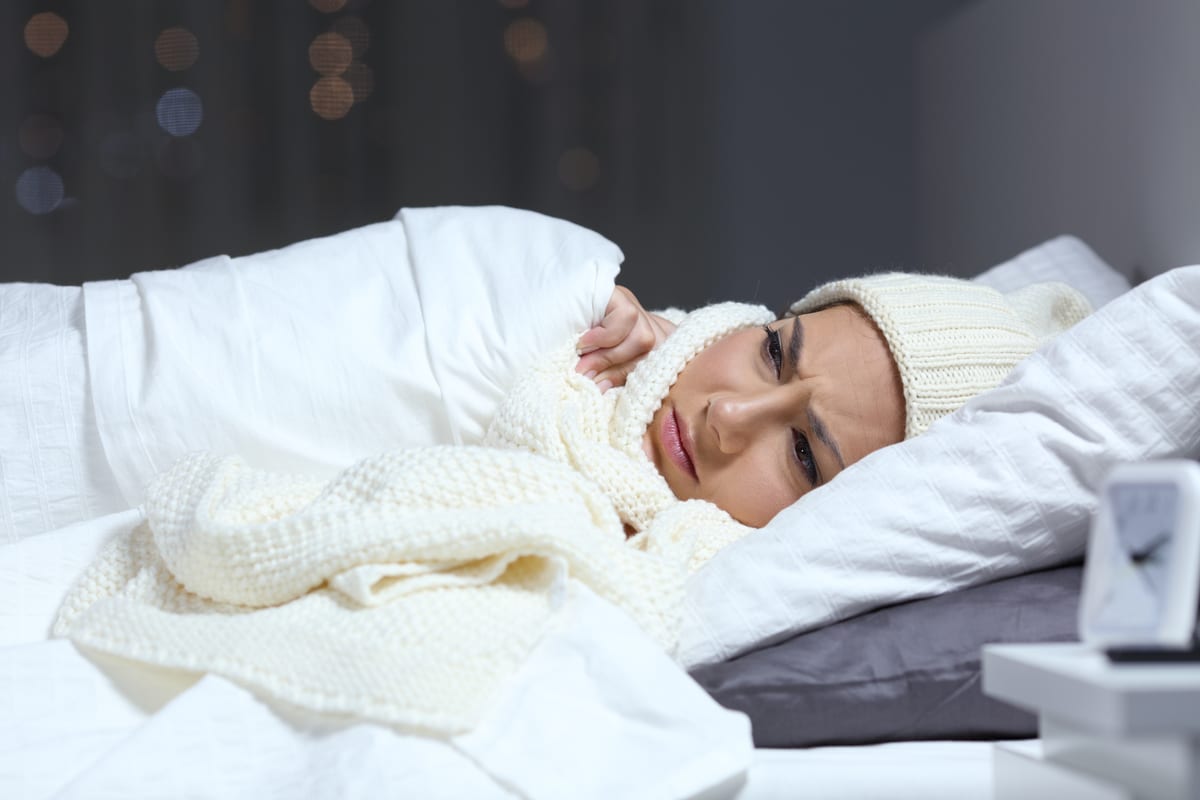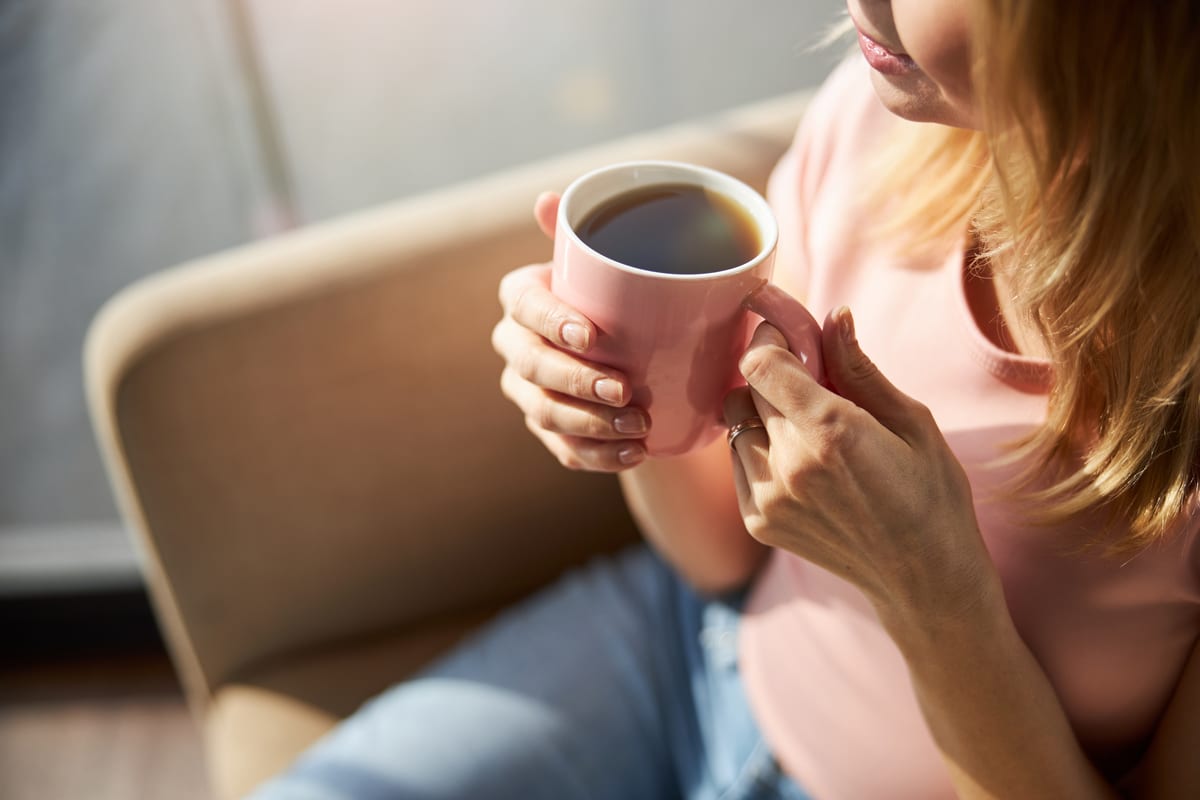
Whether you’re trying to get through the rest of your workday or staying up late to finish a project, it’s likely you’ve indulged in a late afternoon coffee at some point.
That second cup of coffee always seems like a great idea until it’s finally time for your head to hit the pillow and you find yourself wide awake.
But don’t stress out: there are many ways to prepare your body for rest while dealing with a caffeine high. These strategies can range from physical activities to making easy adjustments to your sleep environment.
If you’re struggling to doze off due to caffeine, read on to learn these seven simple tips for falling asleep after drinking coffee.
How Does Coffee Affect Our Sleep?
Coffee can negatively affect your sleep due to the beverage’s high concentration of caffeine. Caffeine is a naturally occurring stimulant present in coffee beans. When you drink a cup of coffee, the caffeine can affect you for many hours.
The way caffeine impacts your energy makes it pretty clear how it will ruin your sleep: it blocks your body’s ability to receive adenosine, a molecule that your body uses to feel sleepy.
The energy high you feel from caffeine is partially the absence of the drowsiness your body should be experiencing, which can make it seem nearly impossible to fall asleep.
Coffee can also disrupt your ability to fall asleep due to its uncomfortable side effects.
Drinking coffee can cause indigestion, increased heart rate, and sweating, all of which will make it more difficult for you to comfortably fall asleep.
Additionally, coffee acts as a diuretic, meaning that it increases your rate of urination. It should be pretty obvious that having to constantly get up to go to the bathroom makes it challenging to fall asleep quickly!
7 Tips For How To Sleep After Coffee
If you are struggling to fall asleep after a cup of coffee, there’s no need to submit yourself to a sleepless night. There are several ways to ease your caffeinated body into rest.
Physical Activity
Exercising regularly can help improve the quality of your sleep. If you are concerned about being over-caffeinated before bed, try going for a walk or working out a few hours before your bedtime.
When you exercise, your body produces more adenosine, the precise sleep-inducing substance that caffeine limits in your body. As a result, engaging in physical activity can help you regain some of the chemical balance you lost from drinking that afternoon cup of coffee.
However, be sure to exercise at least two or three hours before you plan on falling asleep. If you are physically active too close to bedtime, your body may be too energized to become drowsy.
Lower the Room Temperature
Research suggests that people sleep better in cooler temperatures. If you can control the temperature in your bedroom, try turning on a fan or air conditioning to make the space more sleep-friendly.
While warmer temperatures make your body more awake and alert, a cooler temperature can help your body to feel sleepy, cosy, and relaxed. Keeping your room between around 15 to 19 degrees Celsius should improve your quality of sleep.
Take a Warm Shower
Similar to the effect of lowering a room temperature, taking a warm shower or bath before bed can help your body get more comfortable and drowsy.
Due to cooler temperatures triggering a sleepy bodily response, warming your body up and then entering a cooler space will help enhance the contrast effect of the temperatures and increase the sleepy sensation.
Try not to make the shower too hot, however, as this will be less soothing in the long run and might wake you up too much before bed.
Avoid Light
Your brain’s sleep cycle is significantly impacted by exposure to light. If the room is too bright, or you’ve been staring at a backlit screen, your body will have a much harder time transitioning into sleep.
The best way to improve the light in your sleep environment is to only use warm, dim light bulbs as you are getting ready for bed. Once you are in bed, stay away from your phone. It can be tempting to scroll through social media when you can’t sleep, but that nasty blue light is guaranteed to keep you awake longer.
If there’s still too much streetlight coming in once you turn off the lights, it may be a good idea to invest in a set of blackout curtains. Blackout curtains will keep your bedroom dark and cosy and free of distracting street lamps or flashing lights.
Stay Hydrated
Hydrating before bed may seem counterintuitive since the coffee is already making you get up too frequently to urinate. But since coffee dehydrates you, drinking water before bed can help you feel more comfortable.
If you’re dehydrated you will probably have trouble falling asleep and experience issues with dry mouth and snoring, not to mention feel sick from the lack of water.
With that in mind, drinking a glass of water before bed will help replenish the fluids your body has lost due to the coffee, not to mention prevent you from feeling gross when you wake up the next day.
Read a Book
Instead of reaching for your phone when you can’t sleep, try reading a physical book or magazine. Reading will help you avoid your phone’s harsh blue light while still letting you clear your mind with entertaining and relaxing content.
As a bonus, the eye movement facilitated by reading will cause your eyes to get tired. Having tired eyes will help your entire body feel more sleepy, and signal to your brain that it’s time to rest.
If reading isn’t an option or doesn’t appeal to you, soothing music, audiobooks, and podcasts are other great alternatives to looking at your phone. The relaxing audio content can help quiet your mind and calm you down without having to stare at a screen.
Try Playing Dead
If all else fails, play dead. This may sound a little strange, but if you lie flat on your back with your arms by your side—like a corpse—your body will become more relaxed and drowsy.
This sleep position can help your body produce more serotonin, a hormone that makes you feel calm and restful.
Trying this sleep position works best if you focus on deep breathing. Focusing on your breathing can serve as a distraction from the stress of insomnia and can help lower your heart rate. Deep breathing will be most beneficial if you exhale for longer than you inhale.
What If Those Don’t Work?
If you’ve tried every strategy you can think of and you still can’t fall asleep, don’t panic. Becoming stressed will only make it more difficult to eventually drift off.
Even if you can’t fully fall asleep, it’s still important to use that time to rest your brain and body as much as you can. Keep reading your book or listening to that podcast, and practice some deep breathing while getting cosy in a dark or dimly lit room.
If you find yourself significantly sleep-deprived the following morning, be sure to advocate for your health. Set aside time to nap, or try getting to bed earlier if you’re feeling particularly drowsy.
The Bottom Line
Caffeine-induced insomnia is frustrating. A caffeine high can make falling asleep feel impossible.
However, with these mindful bedtime practices, you can improve your odds of getting a full night’s rest.

